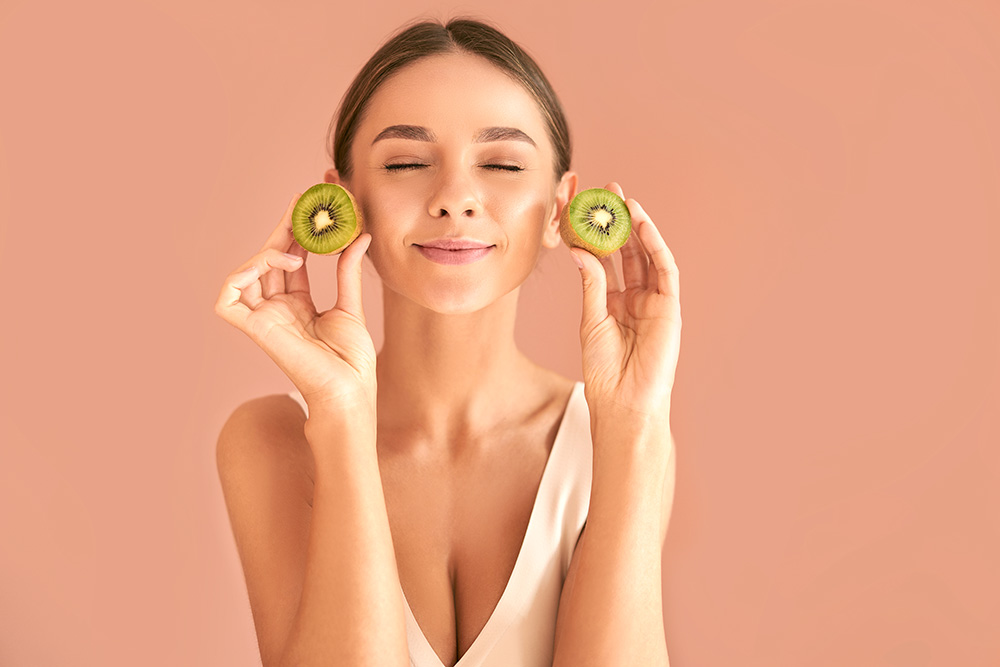
The age-old adage "you are what you eat" holds true when it comes to skin health. Our diet plays a crucial role in maintaining healthy, radiant skin. Consuming the right foods can provide essential nutrients that nourish and protect our skin from various problems like acne, premature aging, and even skin cancer. In this article, we will explore the best foods for promoting skin health and how they can benefit your complexion.
1. Fatty Fish
Fatty fish like salmon, mackerel, and herring are excellent sources of omega-3 fatty acids, which are essential for maintaining skin health. Omega-3s help reduce inflammation, which can cause skin redness, acne, and premature aging [1]. These healthy fats also help keep skin moisturized and supple by maintaining its natural oil barrier [2].
2. Avocados
Avocados are rich in healthy fats, vitamins E and C, and antioxidants that promote skin health. Vitamin E helps protect skin from oxidative damage caused by free radicals, while vitamin C aids in collagen production, keeping skin firm and reducing the appearance of fine lines and wrinkles [3]. The healthy fats in avocados also help keep skin moisturized and flexible.
3. Nuts and Seeds
Nuts and seeds like walnuts, almonds, sunflower seeds, and flaxseeds are packed with nutrients that benefit skin health. They are rich in vitamin E, zinc, selenium, and omega-3 fatty acids, all of which help protect skin from sun damage, reduce inflammation, and maintain skin elasticity [4].
4. Berries
Berries like blueberries, strawberries, and raspberries are loaded with antioxidants that help protect skin from damage caused by free radicals, UV radiation, and pollution. These antioxidants, particularly vitamin C and ellagic acid, also help reduce inflammation and promote collagen production, keeping skin looking youthful and radiant [5].
5. Leafy Greens
Leafy green vegetables like spinach, kale, and Swiss chard are excellent sources of vitamins A, C, and K, as well as antioxidants like lutein and zeaxanthin. Vitamin A helps maintain skin cell turnover, while vitamin C promotes collagen production. Lutein and zeaxanthin help protect skin from sun damage and may even reduce the risk of certain types of skin cancer [6].
6. Tomatoes
Tomatoes are rich in lycopene, a powerful antioxidant that helps protect skin from sun damage and may even reduce the risk of skin cancer. Lycopene is best absorbed by the body when tomatoes are cooked or processed, so opt for tomato sauce, paste, or soup to maximize its benefits [7].
7. Dark Chocolate
Dark chocolate with a high cocoa content (70% or more) is rich in antioxidants called flavanols, which help protect skin from sun damage, improve blood flow to the skin, and increase skin hydration and thickness [8]. However, be mindful of portion sizes, as chocolate is also high in calories and sugar.
Incorporating these nutrient-rich foods into your diet can help promote healthy, glowing skin from the inside out. Remember, while a healthy diet is essential for skin health, it should be combined with other good skincare habits like sunscreen, staying hydrated, and getting enough sleep for optimal results.
References
- Huang, T. H., Wang, P. W., Yang, S. C., Chou, W. L., & Fang, J. Y. (2018). Cosmetic and Therapeutic Applications of Fish Oil's Fatty Acids on the Skin. Marine Drugs, 16(8), 256. https://doi.org/10.3390/md16080256
- McCusker, M. M., & Grant-Kels, J. M. (2010). Healing fats of the skin: The structural and immunologic roles of the omega-6 and omega-3 fatty acids. Clinics in Dermatology, 28(4), 440-451. https://doi.org/10.1016/j.clindermatol.2010.03.020
- Dreher, M. L., & Davenport, A. J. (2013). Hass Avocado Composition and Potential Health Effects. Critical Reviews in Food Science and Nutrition, 53(7), 738-750. https://doi.org/10.1080/10408398.2011.556759
- Nagpal, R., Yadav, H., & Marotta, F. (2014). Gut Microbiota: The Next-Gen Frontier in Preventive and Therapeutic Medicine? Frontiers in Medicine, 1, 15. https://doi.org/10.3389/fmed.2014.00015
- Afrin, S., Gasparrini, M., Forbes-Hernandez, T. Y., Reboredo-Rodriguez, P., Mezzetti, B., Varela-Lopez, A., Giampieri, F., & Battino, M. (2016). Promising Health Benefits of the Strawberry: A Focus on Clinical Studies. Journal of Agricultural and Food Chemistry, 64(22), 4435-4449. https://doi.org/10.1021/acs.jafc.6b00857
- Szeto, Y. T., & Benzie, I. F. F. (2006). Effects of dietary antioxidants on human immune function. Nutrition and Immune Function, 19, 461-477. https://doi.org/10.1079/9780851990750.0461
- Story, E. N., Kopec, R. E., Schwartz, S. J., & Harris, G. K. (2010). An Update on the Health Effects of Tomato Lycopene. Annual Review of Food Science and Technology, 1(1), 189-210. https://doi.org/10.1146/annurev.food.102308.124120
- Scapagnini, G., Davinelli, S., Di Renzo, L., De Lorenzo, A., Olarte, H. H., Micali, G., Cicero, A. F., & Gonzalez, S. (2014). Cocoa Bioactive Compounds: Significance and Potential for the Maintenance of Skin Health. Nutrients, 6(8), 3202-3213. https://doi.org/10.3390/nu6083202
Latest Posts
-
1
-
2
-
3
-
4
-
5





